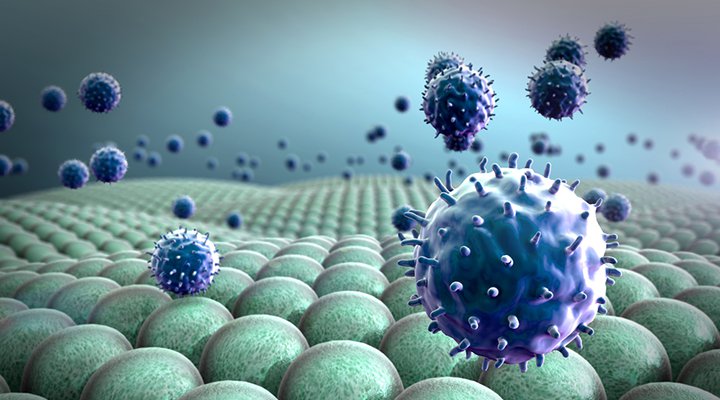The success of immunotherapy in the treatment of multiple sclerosis
- Transfer

The world's first clinical trial of new cellular immunotherapy in the treatment of multiple sclerosis (MS) has improved the symptoms and quality of life of most patients.The treatment is aimed at the Epstein-Barr virus (EBV) and is based on a hypothesis formulated by Professor Michael Pender , a researcher at the University of Queensland and Royal Brisbane and the Women's Hospital (RBWH) .
In 2003, Professor Pender suggested that MS arises from the accumulation of EBV-infected cells in the brain, and that EBV-targeted therapy can stop the progression of the disease.
Cellular immunotherapy was developed by Professor Rajiv Khannoy and his team at the QIMR Berghofer Medical Research Institute, and a phase I clinical trial was conducted in collaboration with Professor Pender and his colleagues.
Professor Pender said that 10 patients — five with secondary progressive MS and five with primary progressive MS — received four doses of treatment for cellular immunotherapy in RBWH.

“Seven of these patients showed improvements,” he said.
"Without treatment, we expected their symptoms to continue to worsen."
“Improvements ranged from reducing fatigue and improving productivity and quality of life to improving vision and mobility.”
"We found that the treatment was safe and without serious side effects."
"Our information complements the growing evidence that EBV infection plays a role in the development of MS."
Professor Khanna said that for the first time, immunotherapy was used in the treatment of an autoimmune disease.
“We have already used cellular immunotherapy in the treatment of various types of cancer and viral infections,” he said.
"This clinical trial is a breakthrough because, for the first time, we discovered that our treatments are safe and show improvements in autoimmune diseases."
"This test opens the door to cellular immunotherapy in the treatment of other autoimmune conditions."
"From the first phase, we also found which cell properties show the best results for patients."
“Now we can apply this knowledge to cellular immunotherapy of other diseases to try to ensure the best results in all patients.”
Phase I clinical trials began in November 2015. Phase II research sponsored by Atara Biotherapeutics is planned in several locations in Australia and the USA.
More than 25,000 Australians are estimated to have multiple sclerosis, with symptoms including coordination problems, poor stability, weak limbs, cognitive problems and memory loss.
Most patients with MS are diagnosed with a recurrent form of remission, but some of them develop a secondary progressive form in which the symptoms gradually worsen.
From the outset, a small portion is diagnosed with primary progressive form.
There are a number of treatments aimed at preventing attacks in MS remission, but there are limited treatment options for patients with advanced forms of MS.
Professor Khanna said that immunotherapy involves taking blood from patients, extracting T (immune) cells and “programming” them in the laboratory to recognize and destroy EBV in patients with MS.
